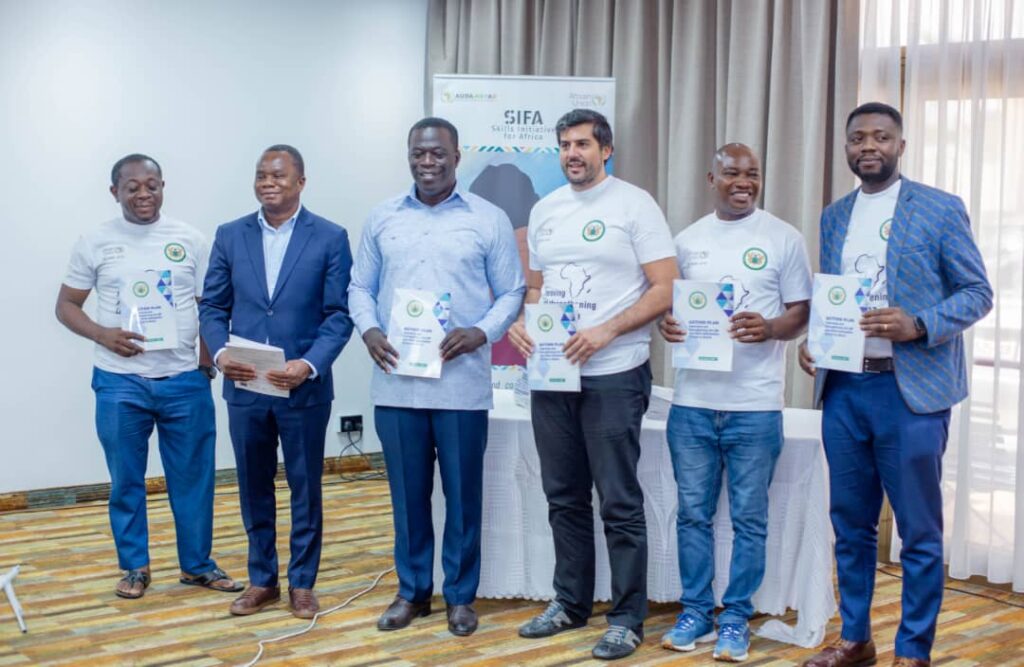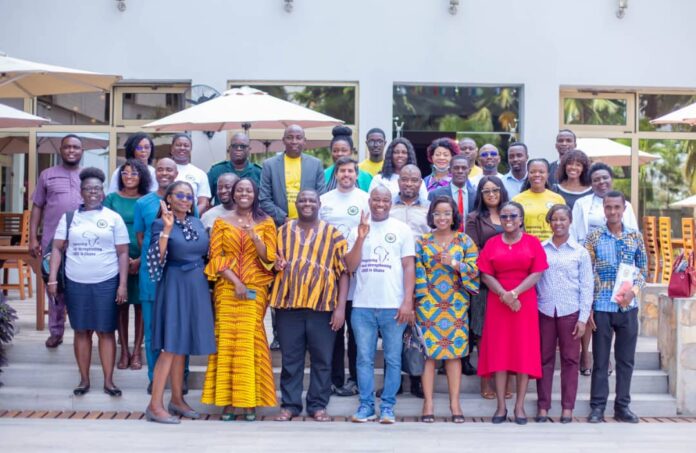The Ministry of Employment and Labour Relations in collaboration with the African Union through its Skills Initiative for Africa (SIFA) with support from the International Labour Organisation (ILO) has launched National Action Plan for strengthening Labour Market Information System and Skills Anticipation in Accra, Ghana.
The national action plan aimed at skills development by matching supply to the current demand for skills; helping workers and enterprises adjust to change; building and sustaining competencies (1) for future labour market needs.
Speaking at the launch, Hon Ignatius Baffour Awuah, the Minister for Employment and Labour Relations said, the action plan will lead to a functional labour market information system which is very useful for every organisation.
“We should be able to have a nice idea about how the labour market is functioning, what are the skills available in the labour market, and what is it that institutions must do to turn out people with certain skills.
These are the things we are lacking and we want to believe that if this project is successful by the time of completion, we should have a system which will be able to anticipate what we need and will be able to inform institutions, especially our tertiary institutions on what skills to teach to be useful in society”.
Hon, Ignatius Baffour Awuah, believed that at the end of the 5 years time limit action plan, institutions should be able to answer questions on labour issues.
Adding that, the ministry is working together with other organisations to provide results to the employment-related crisis.
“Let’s admit that this is not the only approach the ministry is using to combat the Labour crisis, the ministry is working together with the world bank on the ghana job and skills project which is also looking at a functioning labour marketing information system”.
Mr David Marcos, Officer in charge of the ILO project Office in Ghana said the action plan will serve as a source of information for the youth and citizens having difficulty in arriving at what skill to pressure.
He noted that the skills development systems in most African Countries typically consist of public and private providers and are often highly fragmented and poorly coordinated. Skills development programmes normally lack quality and orientation to demand and neither meet labour market skills requirements nor the social demand for accessible skills development that can lead to better employability.
Weak skills development outcomes, and the lack of standards among skills development providers, which impacts the comparability and quality assurance of programmes and certificates, contribute to widening the gap between the skills offered and those needed in labour markets.
As a result, a shortage of skilled workers together with high unemployment, even among graduates from skills development programmes are very common phenomena in most African countries.
Against this background, the ILO through the SIFA-Skills Anticipation Programme component conducted a study in Ghana to map the existing labour market information system and practices and to establish the extent to which the system has institutionalized skills anticipation as an integral part of the national LMIS system.
The mapping exercise provided an overview of the Ghana Labour Market Information system, its data sources, its, capacities and institutional arrangements.
The report also highlighted the strengths and weaknesses of the current system including the fact the Country does not have an institutionalized process of anticipating labour market skills needs.











































